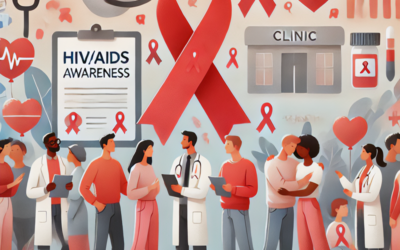As the days grow shorter and colder, many people experience shifts in mood. For some, these changes go beyond a case of the “winter blues” and become a condition called Seasonal Affective Disorder (SAD). SAD is a type of depression that affects millions of Americans each year, often triggered by the changing seasons. At Primary Health Care, we’re here to help you manage your mental health with our behavioral health services.
Why It’s Important
Seasonal Affective Disorder can significantly impact daily life, causing feelings of sadness, fatigue, and difficulty concentrating. While SAD is most common during fall and winter, some people may experience symptoms during spring or summer. Recognizing the symptoms and seeking help early can improve your quality of life and help prevent the condition from worsening.
What to Expect
SAD is a form of depression, and its symptoms include:
- Feeling sad or hopeless.
- Low energy or fatigue.
- Loss of interest in activities you usually enjoy.
- Difficulty sleeping or oversleeping.
- Changes in appetite or weight.
- Trouble concentrating or focusing.
While the exact cause of SAD isn’t fully understood, factors like reduced sunlight, disruptions in your biological clock (circadian rhythm), and imbalances in serotonin and melatonin levels may play a role.
Managing SAD
If you think you might have SAD, there are steps you can take to feel better:
- Light Therapy: Using a special light box can help regulate your mood by mimicking natural sunlight.
- Physical Activity: Regular exercise can boost your mood and energy levels.
- Counseling or Therapy: Cognitive Behavioral Therapy (CBT) is an effective approach for managing SAD.
- Medication: Antidepressants can help some people manage symptoms, especially if started before symptoms begin each season.
 PHC Behavioral Health Services
PHC Behavioral Health Services
At Primary Health Care, we offer behavioral health services to support you through seasonal changes and beyond. Our providers are here to help you create a personalized care plan, whether it includes therapy, medication, or both. We accept Medicaid, private insurance, and offer a sliding fee scale for those without coverage.
Take Control of Your Mental Health
Seasonal Affective Disorder is manageable with the right care and resources. If you’re feeling the effects of SAD, don’t wait to seek help. Visit any Primary Health Care location to learn more about our behavioral health services and take the first step toward feeling better.
Sources:
- Mayo Clinic. (n.d.). Seasonal Affective Disorder (SAD). Retrieved from https://www.mayoclinic.org/diseases-conditions/seasonal-affective-disorder.
- American Psychiatric Association. (n.d.). What Is Seasonal Affective Disorder? Retrieved from https://www.psychiatry.org/patients-families/depression/seasonal-affective-disorder.
- National Institute of Mental Health (NIMH). (n.d.). Seasonal Affective Disorder. Retrieved from https://www.nimh.nih.gov/health/publications/seasonal-affective-disorder.
Related Post
Take Control of Your Health: Understanding HIV and AIDS Awareness
December 1 is World AIDS Day. Raising awareness about HIV and AIDS is key to breaking stigma, encouraging testing, and ensuring access to care. At Primary Health Care, we’re proud to support the community with specialized HIV prevention and care services through our...
Take Control of Your Diabetes: How to Manage Your Health
Managing diabetes is essential to staying healthy. With regular check-ups and a few lifestyle changes, you can keep your diabetes under control and improve your overall well-being Why It’s Important: When diabetes isn’t managed well, it can lead to serious health...
September is Suicide Prevention Month
September is Suicide Prevention Month, a time to raise awareness about the importance of mental health and to remind everyone that help is available. At Primary Health Care (PHC), we’re committed to supporting you with our mental and behavioral health services....
Supporting Your Loved One With Depression
Understanding depression in relationships. Here are some strategies for support and self-care.
Moms, Have You Scheduled Your Mammogram Yet?
As we celebrate Mother's Day, remember the role mothers and mother figures play in our lives. Encourage them to prioritize their own health and well-being by getting this important cancer screening. Mammograms save lives! Moms are always putting the needs of others...
VIDEO: Arthritis-Appropriate, Evidence-Based Interventions
Watch Dr. Bery Engebretsen and Dr. Paul Mulhausen discuss arthritis interventions. Physical activiy and self-management education programs designed to help increase physical activity safety and comfortably, or to teach individuals how to cope with arthritis-related...
Raising Awareness: Understanding Oral Cancer and the Importance of HPV Vaccination
Discover the latest insights on oral cancer awareness and prevention in our upcoming blog post. Learn about common symptoms, how to reduce risks, the importance of HPV vaccination, and why early detection is key in safeguarding your health.
Heart Health Month
February is Heart Health Month! Nutrition is a good place to start when considering changes to improve the health of your heart. Below are ten tips, from our friends at the American Heart Association, to begin your journey to a healthier heart. A word of advice from...







